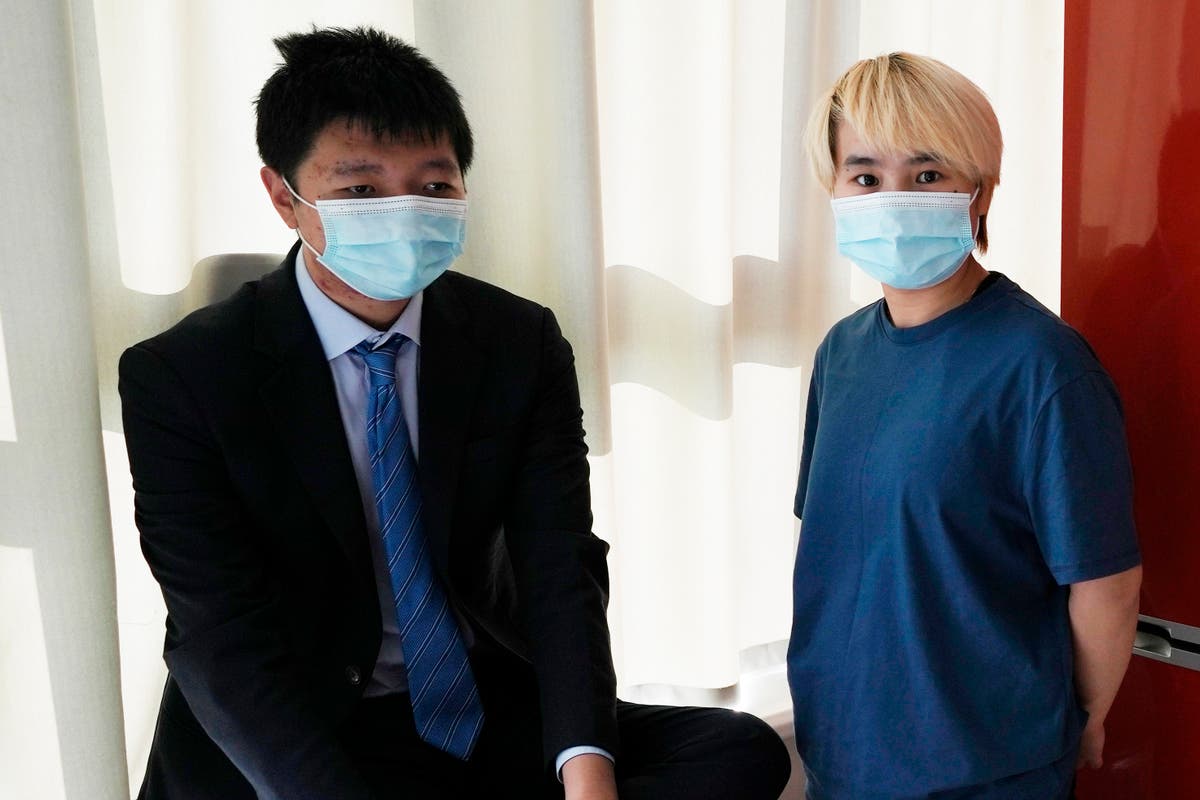
A Chinese woman has alleged she was detained in a secret jail run by Chinese agents in Dubai, in what could be the first evidence Beijing is operating a so-called “black site” beyond its borders.
Wu Huan, 26, said that Chinese authorities abducted her from her Dubai hotel and took her to a villa where rooms were converted into prison cells. China considers Ms Wu’s fiance, 19-year-old Wang Jingyu, a dissident and tried to extradite the couple back to China, according to Ms Wu.
She was threatened and forced to sign documents containing criminal charges against her fiance for harassing her. She was finally released on 8 June and is now seeking asylum in the Netherlands.
During her stay in the alleged Chinese jail, Ms Wu saw or heard at least two women who belong to the Uyghurs, the Turkic Muslim community under persecution in China.
Mr Wang is wanted by China because he posted messages questioning Chinese media coverage of the Hong Kong protests in 2019 and China’s actions in a border clash with India.
Although neither Ms Wu nor Mr Wang is Uyghur, China sees any hint of discontent as a sign of dissent to the Communist Party and its leader President Xi Jinping.
Mainland China is dotted with “black sites” where large numbers of activists and dissidents are being held. They are usually hotels or villas where detained suspects are not charged with a crime and have no legal recourse, with no bail or court order.
Ms Wu’s testimony to AP is the first known evidence that Beijing has built such secret jails beyond its borders.
This crucial testimony is especially important as it sheds light on China’s growing diplomatic clout over its allies in the Middle East and beyond. It also reveals how the Chinese leadership is using its influence to detain or bring back wanted citizens from abroad, whether they are dissidents, corruption suspects or minority ethnic groups like the Uyghurs.
AP said it could not confirm or disprove Ms Wu’s account independently, and she could not pinpoint the exact location of the alleged black site. However, reporters have seen and heard corroborating evidence, including stamps in her passport, a phone recording of a Chinese official asking her questions and text messages that she sent from jail to a pastor helping the couple.
China did not respond to multiple requests for comment sent to the Ministry of Foreign Affairs and its consulate in Dubai. Dubai also did not respond to multiple phone calls and requests for comment to the Dubai Police, the Dubai Media Office and the UAE Ministry of Foreign Affairs and International Cooperation.
Yu-Jie Chen, an assistant professor at Taiwan’s Academia Sinica, said she had not heard of a Chinese secret jail in Dubai, and such a facility in another country would be unusual. However, she also noted that it would be in keeping with China’s attempts to do all it can to bring select citizens back, both through official means such as signing extradition treaties and unofficial means such as revoking visas or putting pressure on family back home.
“(China) really wasn’t interested in reaching out until recent years,” said Chen, who has tracked China’s international legal actions. “This trend is increasingly robust.”
Ms Wu says she was held in a Dubai police station for three days. Later, she was taken by two men, who identified themselves as Chinese Consulate officials, to the secret jail. In the same black Toyota taking her to the villa, Ms Wu saw multiple Chinese citizens, but she was too scared to identify their faces.
After driving for half an hour, they stopped on a deserted street with rows of identical compounds. She was brought inside a white villa with three stories, where a series of rooms had been converted into individual cells, she said.
Ms Wu’s room had a heavy metal door that was closed at all times except for when she was fed or interrogated in Chinese by guards in masks.
One day, while she was waiting to use the bathroom, she saw a Uyghur woman. Later, she heard a Uyghur woman shouting in Chinese that she didn’t want to be deported to China, but she rather wanted to go to Turkey.
Along with the Uyghurs, China has arrested human rights activists, imposed a notorious national security law to stifle the democratic movement in Hong Kong, and detained and brought back hundreds of ex-officials on corruption charges. Experts say the authorities often use corruption as a legal justification to purge aides who hold different views or could be considered as a threat to Mr Xi’s hold on power.
Dubai also has a history as a place where Uyghurs are interrogated and deported back to China. And activists say Dubai itself has been linked to secret interrogations involving other countries. Radha Stirling, a legal advocate who founded the advocacy group Detained in Dubai, said she has worked with about a dozen people who have reported being held in villas in the UAE, including citizens of Canada, India and Jordan but not China.
However, Patrick Theros, a former US ambassador to Qatar who is now strategic adviser to the Gulf International Forum, called the allegations “totally out of character” for the Emiratis.
“They don’t allow allies freedom of movement,” he said. “The idea that the Chinese would have a clandestine centre, it makes no sense.”
After her release on 11 June, Ms Wu flew out of Dubai to Ukraine, where she was reunited with Mr Wang.
After threats from Chinese police that Mr Wang could face extradition from Ukraine, the couple fled again to the Netherlands.
Additional reporting by AP






